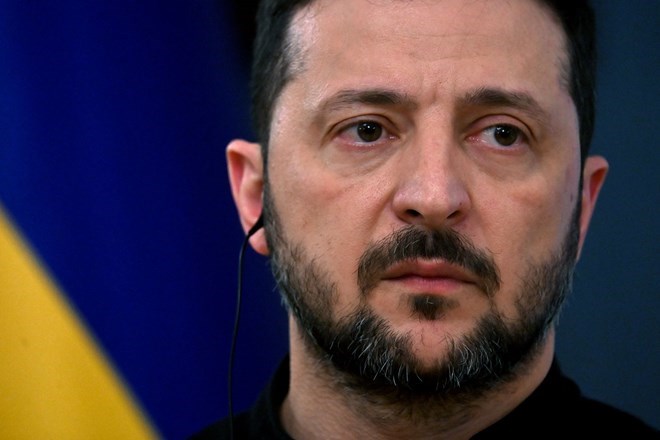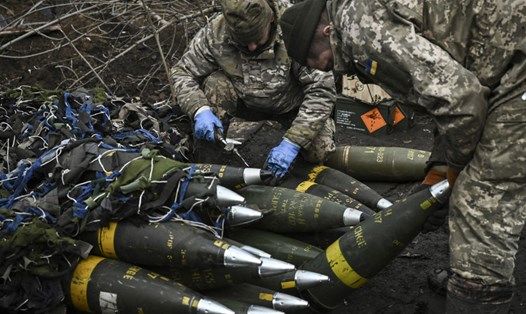In an interview with British media on November 9, Ukrainian President Volodymyr Zelensky said that military support from international partners, including the European Union (EU) and the UK, "never be enough" in the context of the conflict with Russia that has not cooled down.
Mr Zelensky stressed that the problem does not lie with EU leaders or British Prime Minister Keir Starmer, and affirmed that he only feels enough when the conflict ends and Russia stops expanding its special military campaign as well as airstrikes on Ukrainian territory.
When asked if he wanted the alliance to send soldiers to Ukraine to strengthen security along the border with Belarus before reaching a peace deal with Russia, the Ukrainian leader immediately replied: "Of course".
However, he said that this issue needs to be handled carefully as the conflict is still ongoing, otherwise it can cause public instability in neighboring countries. According to him, the majority of Europeans do not want to be directly drawn into the conflict.
In the end, deploying troops is their choice, Zelensky said, noting that Kiev risks losing financial and military support from its partners if it puts too much pressure.
The idea of sending troops to Ukraine under the name of peacekeeping forces to monitor a potential ceasefire was initiated by British Prime Minister Keir Starmer in March, and later received strong support from French President Emmanuel Macron.

Although many countries have been reserved about the risk of escalation, Mr. Macron still calls for allies to participate, forming a so-called "voluntary alliance". The plan attracted the attention of not only the UK but also most NATO members at that time.
However, only about 2 months later, this ambition was almost "ditylized" due to disagreements between countries.
In the mid-August - early September period, the plan was resumed after Zelensky's meeting with European leaders and US President Donald Trump at the White House on August 18 to discuss ensuring security for Ukraine.
Despite not being supported by Trump, Western European leaders, including Macron and Starmer, continue to promote the initiative. However, after a series of warnings from Russia, diplomatic tensions and public opposition, the "voluntary alliance" once again fell into a deadlock.
For its part, Moscow has strongly rejected any scenario of the presence of European troops in Ukraine, warning that this could lead to an uncontrollable escalation and the worst case scenario is direct confrontation between Russia and NATO.











